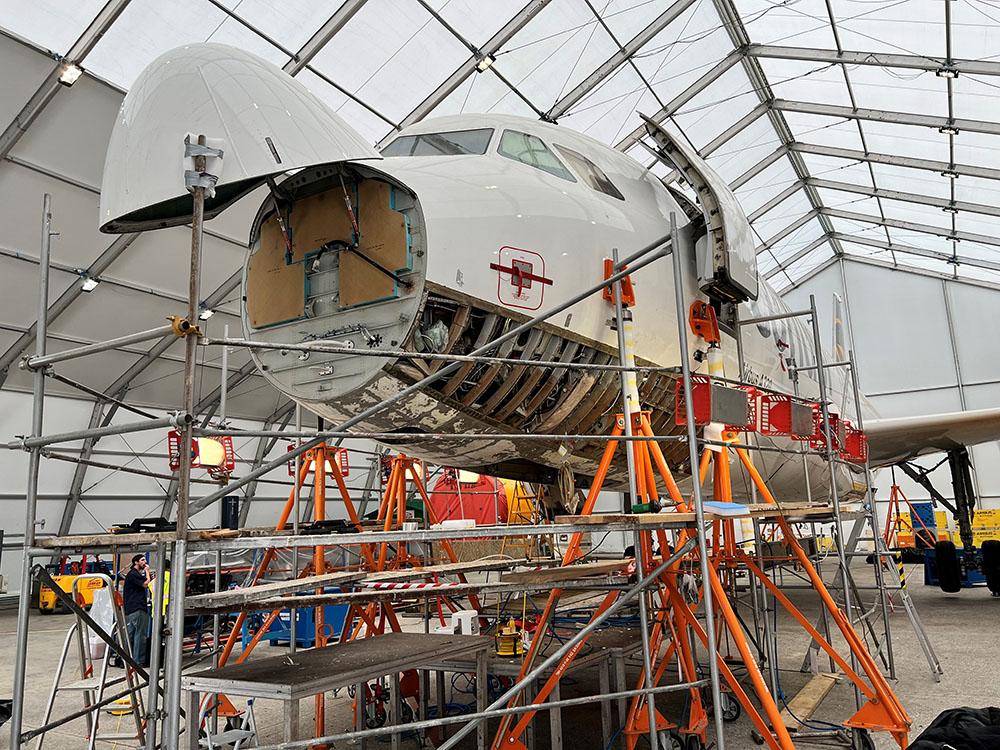
Certified Aviation Services (CAS) has rolled with the punches during the novel coronavirus crisis by adapting capabilities and investing in staff. During the downturn, the U.S.-based MRO has used funding from the Paycheck Protection Program under the CARES Act toward providing training to technicians on new aircraft types.
According to a representative for CAS, contract losses due to COVID-19 necessitated the need to transfer technicians to another carrier’s fleet, which included aircraft types that technicians were not suitably trained for. It used a computer-based training program from CPaT Global to conduct in-house training on more than 9 fleet types, including Boeing 767/777/787/747 and Airbus A220/A320/A321/A330. According to CAS, it was able to grant more than 30 certificates at its stations at LAS, LAX, ORD, SEA and SFO.
While CAS was forced to furlough and lay off some employees to keep the company operational throughout the downturn, it says the training efforts enabled it to keep technicians on the payroll.
“In these critical times, we thought it best to come up with a solution rather than down-size our staff. I am pleased we chose the alternative,” says Cesar Moya, director of quality and training at CAS. “Because in the end, choosing to invest in the knowledge and skills of our aircraft technicians, we increase the safety and quality of our services to our customers,”
CAS says that in addition to changing contracts, there has been a change in demand for services such as cargo and storage. It has received contracts for aircraft storage at its hangar in San Bernardino, California, where aircraft are being stored and maintained.
The company also just appointed a former Airbus Americas executive as its new president and chief operating officer. Paul Oliver, who most recently served as VP customer services at Airbus Americas, will lead CAS’ efforts in developing and implementing a global strategy as the industry recovers from the COVID-19 downturn.
Meanwhile, staff at CAS facilities worldwide continue to operate with safety precautions in place such as maintaining 6 ft. distancing, wearing masks, frequent hand washing and regular cleaning of high-traffic areas. A spokesperson for CAS says it is difficult to predict when things will get back to normal, but the company will “take it one day at a time, one plane at a time.”





